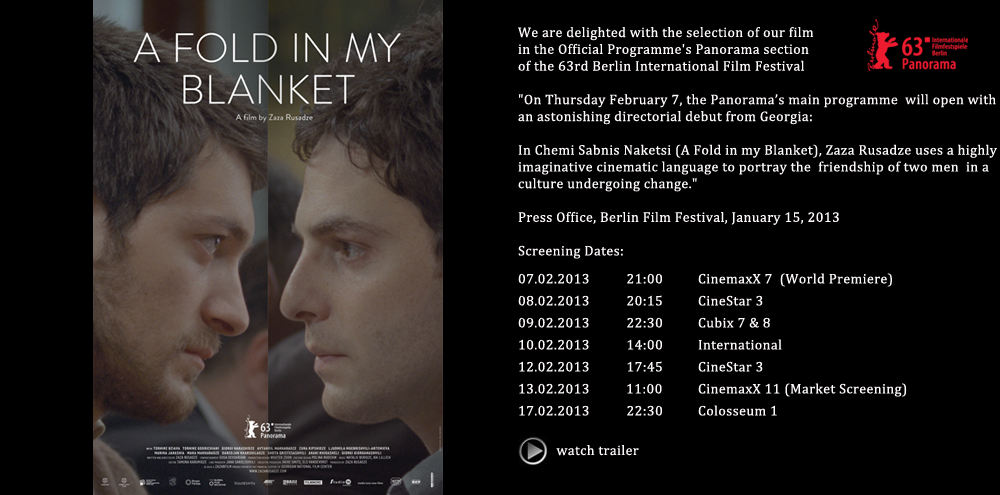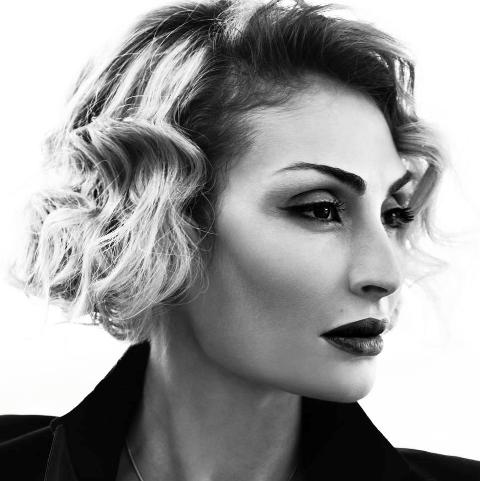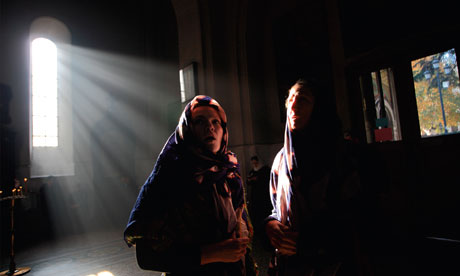The action takes place in a Georgian town in the near future when a young man returns home from studying abroad to begin work at the court of law and break the daily routine through his hobby of mountain climbing. Looking at the landscape from atop a mountain, he tries to free himself from the claustrophobia of his native town. The cast of both young and experienced actors includes Avtandil Makharadze who returns to films after Tenghiz Abuladze’s Repentance (1984) and Mikheil Kalatozishvili’s The Chosen One (1992).
Some 15 Georgian films have participated in the Berlinale, beginning with Giorgi Shelgelaya’s The Trip of a Young Composer, which won the Silver Bear in 1986. In1993 Temur Babluani’s The Sun of the Sleepless was awarded for Best Direction.
The Georgian National Film Center, which has been actively cooperating with the Berlin Film Festival for seven years, invited representatives of the Berlin Film Festival to Tbilisi in 2011–2012 to view recent Georgian films.
Georgia will also be represented at the Festival’s European Film Market this year.
+++
Georgian Film in the Official Program of the 63th Berlin Film Festival (gnfc.ge)
Ten New Films Awarded Funds by the Global Film Initiative (constantcontact.com)
+++
Zaza Rusadzes Spielfilmdebüt läuft bei Berlinale
Vor Jahren arbeitete Filmstudent Zaza Rusadze
(35) noch als Übersetzer bei der Berlinale, jetzt ist der gebürtige
Georgier mit seinem Spielfilmdebüt eingeladen worden. A Fold in My
Blanket feiert in der Panorama-Reihe des vom 7. bis 17. Februar
stattfindenden Festivals Weltpremiere.
Der Absolvent der Babelsberger Hochschule für
Film und Fernsehen Konrad Wolf (HFF) erzählt eine Geschichte von zwei
jungen Männern und einem mysteriösen Wald. Dmitrij (Tornike Bziava) und
Andrej (Tornike Gogrichiani) wollen aus der Angepasstheit ausbrechen.
Sie entdecken einen illusorischen magischen Wald, in dem Andrej
verschwindet. Kurze Zeit später erfährt Dmitrij, dass Andrej des Mordes
angeklagt ist. Andrej hat kein Alibi dieses soll Dmitrij liefern. Die
Enthüllung über den magischen Wald und Andrejs seltsames Verschwinden
darin sorgt für Aufruhr bei der Gerichtsverhandlung. Andrej wird für
schuldig befunden und zum Tode verurteilt. Alles scheint verloren...
Der in Berlin und Tiflis lebende Rusadze fand
schon früh zu bewegten Bildern: Von 1989 bis 1994 moderierte er ein
Jugendmagazin des georgischen TV. 1996 wurde Rusadze als bis dahin
jüngster Regiestudent an der HFF aufgenommen. Sein Studium schloss er
2003 mit dem Dokumentarfilm Banditen ab. 2006/07 studierte er an der
Kunsthochschule Amsterdam, erarbeitete dort das Konzept zu A Fold of my
Blanket, gründete 2007 die Filmproduktionsgesellschaft Zazarfilm. 2010
bekam er ein Stipendium, um das Drehbuch für seinen Spielfilmdebüt zu
entwickeln.. (R.N)

































